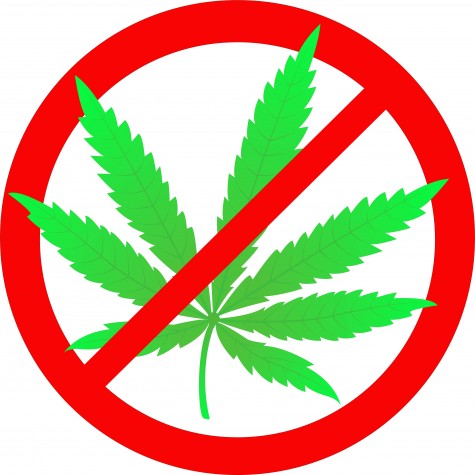Marijuana and the Negative Effects
September 24, 2015
 I’ve noticed that more people have started smoking marijuana in high school than ever before, and most of them don’t even know any of the negative effects. So it’s no surprise that a poll about marijuana caught my eye recently. The poll said that approximately seven out of ten Americans think that alcohol is more harmful than marijuana. After I read that I got very interested. I wanted to learn more, and this is what I discovered.
I’ve noticed that more people have started smoking marijuana in high school than ever before, and most of them don’t even know any of the negative effects. So it’s no surprise that a poll about marijuana caught my eye recently. The poll said that approximately seven out of ten Americans think that alcohol is more harmful than marijuana. After I read that I got very interested. I wanted to learn more, and this is what I discovered.
What is marijuana? Marijuana is a greenish-gray mixture of the dried, shredded leaves and flowers of Cannabis sativa (the hemp plant). Many of you look at hemp paper and think “Oh, that could have been weed.” However, it’s not even the same thing, as they both require different growing conditions. Hemp is grown mainly outside to maximize the size, and no one is constantly working with it. On the other hand, marijuana is grown in a maintained environment.
How does marijuana affect you? It affects almost every organ in your body, your nervous system and your immune system, too. When you smoke pot, your body absorbs THC(1) right away. Smoking pot can increase your heart rate by as much as two times for up to three hours – that’s why some people have a heart attack right after they use marijuana. It can increase bleeding, lower blood pressure, and affect your blood sugar. We don’t yet know if marijuana is linked to higher odds of getting lung cancer, but the process does irritate your lungs — which is why regular pot smokers are more likely to have an ongoing cough and lung-related health problems like chest colds and lung infections.
Though you may have heard otherwise, marijuana can be addictive: Nearly ten percent of people who use it become dependent on it. It isn’t clear whether or not marijuana is a gateway drug that makes people more likely to try harder drugs like cocaine and heroin. In recent studies, scientists have found that the amount of THC in marijuana has gone up. Leaves used to have as much as one to four percent concentration of THC. Now, the leaves have as much as seven percent, and there are concerns that marijuana is becoming more addicting.
If you’re a man, heavy marijuana use could lower your testosterone levels and your sperm count and quality. Such usage, in turn, can zap your libido and fertility.
Research shows a link between marijuana use and mental health problems like depression, anxiety, suicidal thoughts, short-term psychosis and schizophrenia. While it’s not clear if marijuana causes these conditions, it can make them worse.
It’s scary to think that your best friend could have a heart attack whenever they use marijuana. Since marijuana is a gateway drug, its usage could lead to something even worse: worse health conditions and/or other more dangerous drugs. Even though marijuana is legal in some states, that doesn’t mean that it is good. It means that the kind of marijuana doctors give to the patient is controlled. If you bought some from a random person on the street it could be laced with something bad and you could get hurt. Bottom line: it’s better to be safe then sorry.
THC(1)-tetrahydrocannabinol–a compound, C 21 H 30 O 2 , that is the physiologically active component in cannabis preparations (marijuana, hashish, etc.) derived from the Indian hemp plant or produced synthetically. THC affects your memory, hunger, and your reaction time.
Sources: http://www.webmd.com/mental-health/addiction/marijuana-use-and-its-effects


